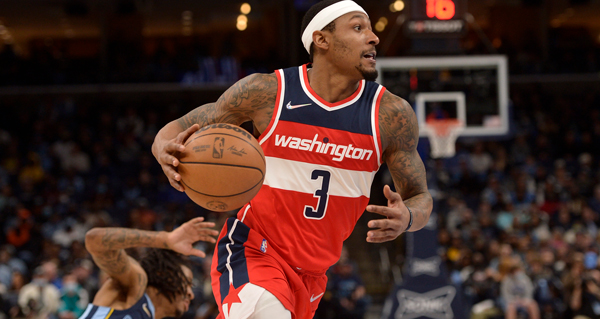It used to be that players were trapped. First by formal mechanisms, then by convention. Unrestricted free agency didn't come to the NBA until 1988, when the players' union pushed hard for it in collective bargaining negotiations and Tom Chambers left the mediocre Sonics for a Suns squad that immediately rocketed up the standings. In the 90s, there were a few notable summer defections—Shaq to the Lakers, Tim Hardaway to the Heat—but stars still mostly stayed put, largely because the league's imagination hadn't yet expanded to meet the bounds of its relatively new rules.
Teams didn't plan, two or three years out, to clear out cap space for a player they wanted. Players felt a kind of by-default loyalty to the franchises that drafted them, and the really good ones were often locked into seven- or eight-year contracts that seemed like they would never expire. This isn't to push the false narrative that LeBron invented the concept of athlete autonomy when he fled Cleveland for Miami in July 2010, but it's undeniable that player movement has been quite a bit more fluid since then, both in free agency and via trades which are often themselves informed by the fact that a guy has one or two years left on his deal, and has made it clear he's not going to stick around.
Kevin Garnett, if he was drafted by the Timberwolves in 2005 instead of 1995, would almost definitely not have spent over a decade in Minnesota, arriving in Boston just in time to win a title, but also a little bit past his prime. It's easy to picture this alternate universe version of K.G. as a 27-year-old Celtic, or Laker, or Rocket. He would have been less patient with Kevin McHale's fumbling management style, less Catholically committed to bearing the weight of an imperfectly constructed project year, after year, after year. That's just not done anymore. Even Dame Lillard, who has been a Blazer now for 10 seasons, with only moderate success, has spent the past two years making noises about front office incompetence, taking lunches with LeBron and Anthony Davis, trying to create a path by which he could leave Portland without sacrificing his local hero status.
Which is why Bradley Beal is such a strange case. He's not entirely outside of time. He's done plenty of remonstrating and complaining through the Wizards' lean years and their outright embarrassing ones, and he's never been quick to quell rumors that he might be on his way to, say, Philadelphia or Los Angeles. But he has also affirmed his commitment to Washington several times over, most meaningfully with the two-year extension he signed in October 2019, which is now on the verge of expiring, should he turn down his 2022-23 player option. At age 29, with a fairly extensive injury history behind him, this summer represents Beal's last best opportunity to switch to a title contender while still at the peak of his powers. It doesn't look like he's going to take it. Recent reports indicate he's going to nix his player option and re-up with the Wizards through 2026, collecting $248 million over five years.
A quarter of a billion dollars is a compelling argument by itself, but the counterargument is that he's already earned more than $170 million over the course of his career. While there comes a point when these numbers don't mean much on a practical level—Beal was quoted as saying "all the money, all the cars [get old]" back in 2019—they do hold value purely as value. Our society is a vegitative being that derives pleasure exclusively from watching numbers go up, so a salary represents a man's cosmic worth. You are what you are paid. This doesn't make sense if you give it even five minutes of thought, but you live in the world, so you also understand it. Beal lives in it too, which is why he's inclined to take every cent that's on offer.
But he could obviously still pull down a ton of money elsewhere, if slightly less than what Wizards can give him. Lots of his peers have decided over the past decade to leave some $10 million or $20 million on the table in order to compete for a championship. Beal has insisted that he can make that happen in Washington, which is the same thing as not saying anything at all, because nobody believes him.
You can't publicly admit this, maybe you can't even admit it to yourself, but all available evidence points to Bradley Beal simply not caring about winning all that much. And by extension, not caring what people make of him. He very nearly won a scoring title in 2020-21, losing out to Steph Curry by a fraction of a point per game, and yet isn't considered in the same stratosphere as Steph. There was buzz, when he was ascending in his mid-20s, that he might be an awesome number two next to somebody like LeBron or Kevin Durant. That flattering speculation has faded, not because Beal's play has fallen off, but because fans and media have either located in him or projected onto him a troubling lack of competitiveness. He would probably just fall apart in a Finals game anyway. An unwillingness to try, over a long enough span, becomes indistinguishable from an inability to perform.
Beal might be happier, or at least less dogged by criticism, in the league Kevin Garnett was drafted into, where it wouldn't be out of the ordinary for him to cash gigantic checks from a middling-to-awful franchise in perpetuity. His being rooted in place might be understood as a virtue. They weren't ever able to put a winner around poor Bradley Beal. Different eras put different glosses on similar situations. At any rate, Beal likely isn't sweating whatever criticism finds him. He has a home and a family in a city he likes, and more material comfort than he needs, which is apparently exactly what he wants.



